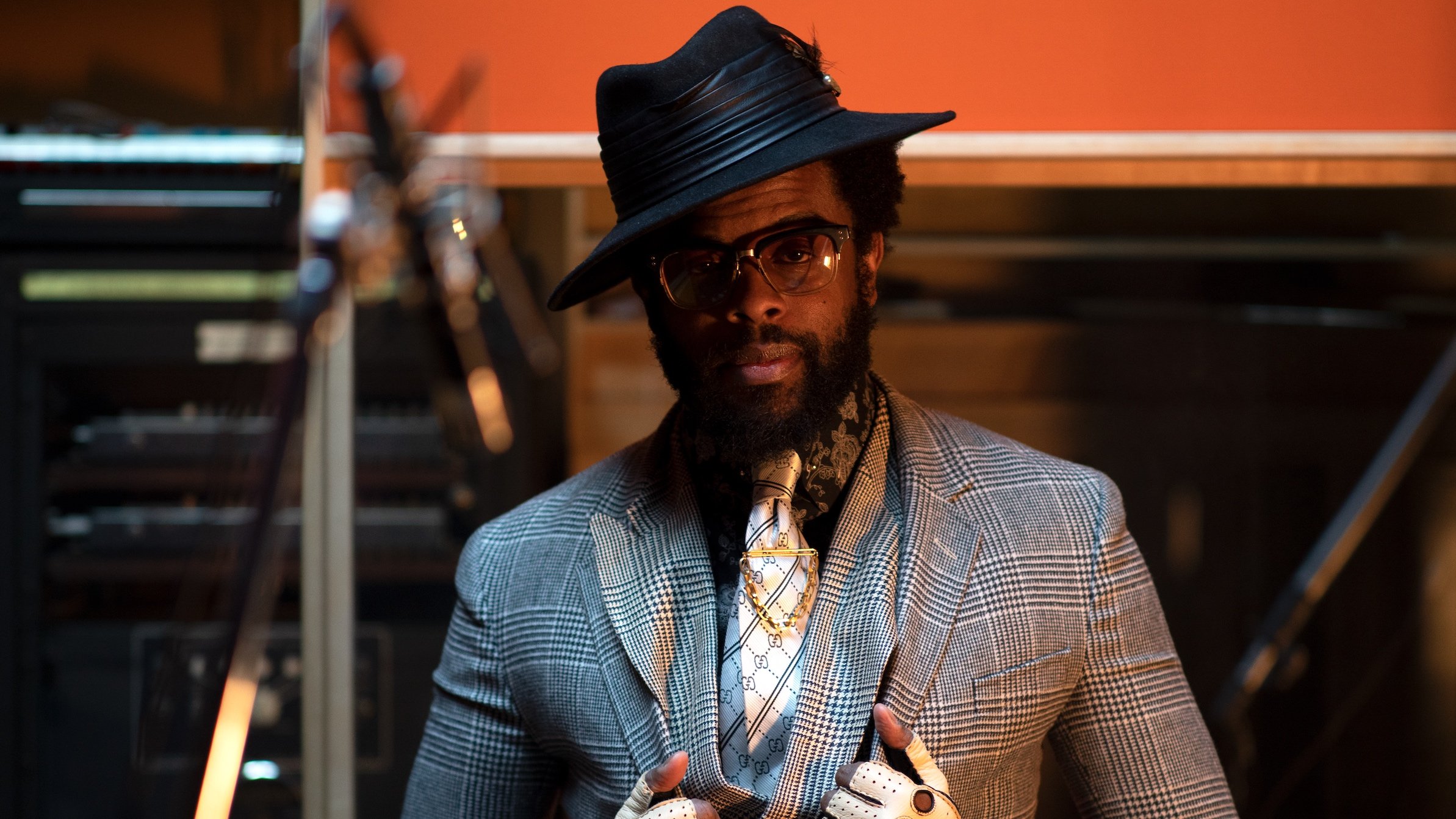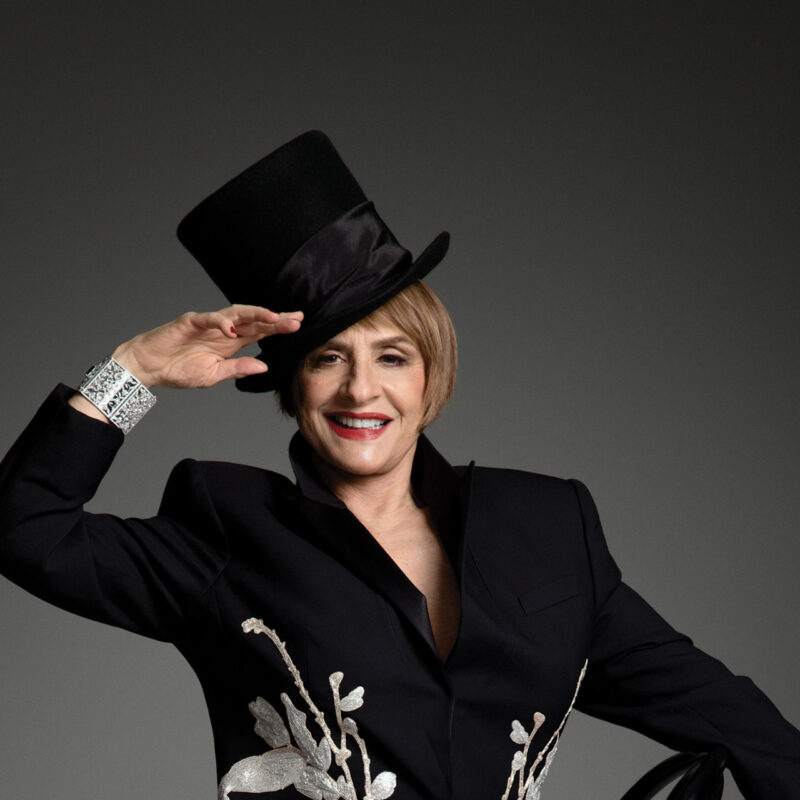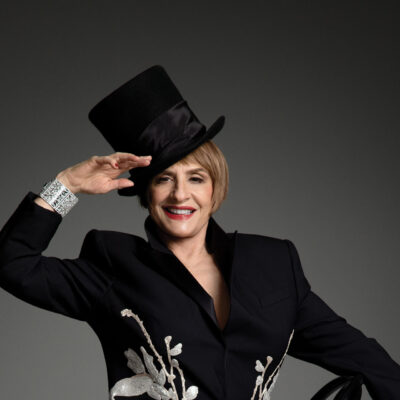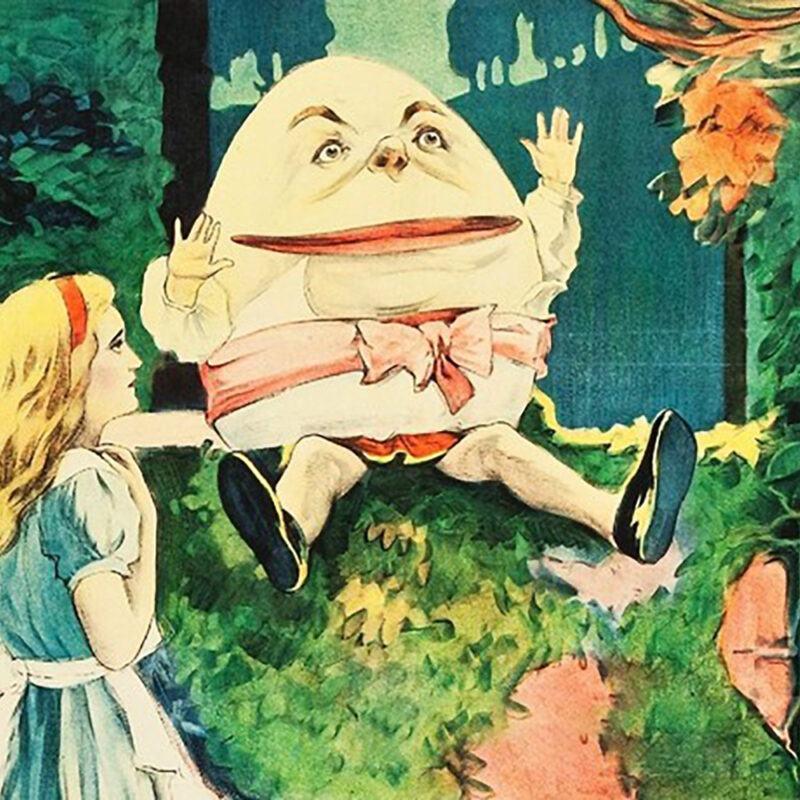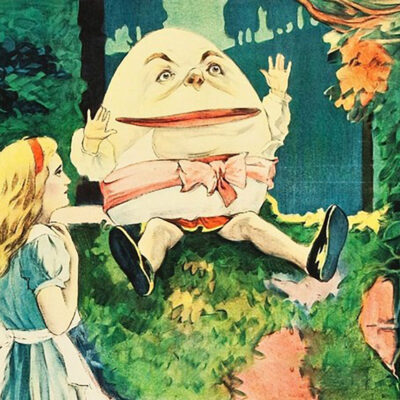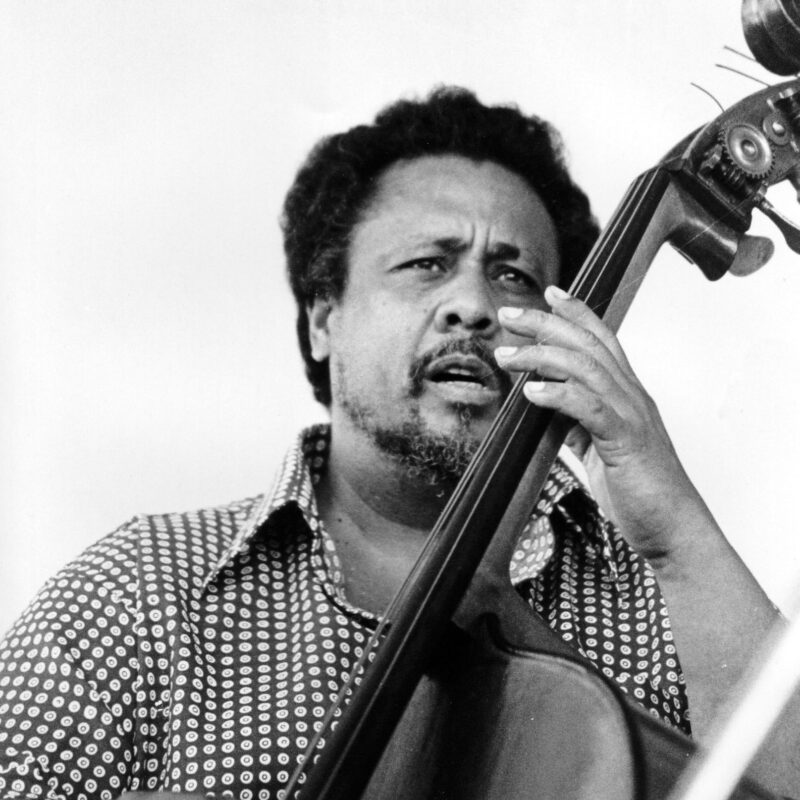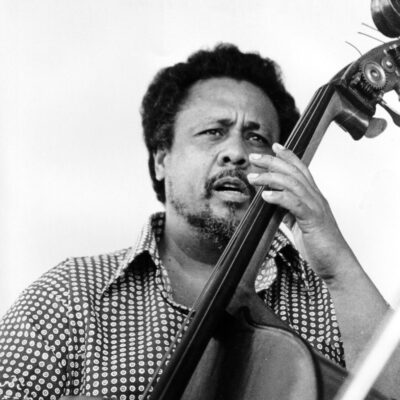There’s a Portuguese word, saudade, that doesn’t translate exactly to English. Maybe it works out to something like “a mournful longing?” But composer and multi-instrumentalist Adrian Younge describes its meaning perfectly in trying to pinpoint his own particular brand of emotive music.
“It’s the vortex of where dark music meets romantic music,” he says on a Zoom meeting from his home in Los Angeles. “There’s a place where they meet, and you can bob your head to these dark chords. But the song takes you on a journey where you start feeling emotions that are not just dark, but melancholy, you know?”
A lithe and beautiful combination of sentiment and music animates Younge’s work in a tapestry that, over time, has encompassed everything from funk and soul, to jazz and hip-hop. During the past 25 years—as his practice has expanded beyond composing soundtracks for Black Dynamite, a modern exploitation film released in 2009, and the Disney+ series “Luke Cage”—Younge has imprinted his perspective on a range of solo works, including the recently released Something About April III.
Each entry in the April series, which stretches back to 2011, investigates a romantic relationship across race, gender, or color. This final work is focused on a Brazilian couple—a light-skinned Black woman and a dark-skinned Black man.
“All the albums essentially have the same journey, where it’s the journey of two couples trying to make it, and their trials and tribulations are represented by the season,” explains Younge, who’s performing at The Southern Café and Music Hall on Saturday, June 21. “So, Something About April really represents spring. … After winter, things spring back again.”
Between the first April album and the final installment, Younge’s picked up a handful of notable skills and a range of new musical endeavors. The composer helped spearhead the Jazz is Dead project alongside A Tribe Called Quest’s Ali Shaheed Muhammad and Dru Lojero, the pair’s manager. Over a few dozen JID albums, they’ve crafted new music for a litany of jazz luminaries, like Richmond-born Lonnie Liston Smith, Roy Ayers, and Gary Bartz. In addition, Younge and Muhammad also cultivated relationships with some of Brazil’s best-loved players, issuing records by João Donato, Marcos Valle, and most recently Hyldon.
It’s those latter connections that worked directly to inspire the recent April III recording.
While playing with Brazilian musicians in the studio, Younge found himself learning and dispatching Portuguese phrases. He eventually realized not just the utility, but the connective force that learning the language could potentially have. So, for April III, he decided to pen all the lyrics in Portuguese.
There’s a skillful combination of Música Popular Brasileira, American soul, and jazz across the recording, in some places mimicking Younge’s recent JID albums. More than a few passages summon vintage psychedelic sounds, tinted with strings and round-toned basslines: “Nossas Sombras” features a particularly knotty guitar line and “Nunca Estranhos” is built around a tricky percussion pattern. But “Esperando do Voce” might best encapsulate the album’s aims. The title translates to “waiting for you,” a feeling and concept that overlaps with the idea of saudade, built upon a raft of moody keys, funky drums, and group choruses.
April III also includes Younge’s fully formed upright bass playing, something he said he’d previously aimed to emulate on his electric instrument. The change to upright eventually started “feeling very natural and more expressive.”
Jack Waterson has recorded on more than a dozen albums that Younge’s overseen—including each of the April recordings. And while the guitarist came to prominence during the early ’80s as a member of the Paisley Underground group Green on Red, he connected with Younge over a shared obsession with analog gear.
“I’m certainly inspired by him,” says Waterson, the proprietor of Future Music, an L.A. gear shop where he and Younge first met. “He’s gotten me to really look at things differently, to appreciate things, to learn things, to move, to push myself. And I’m really fortunate, because a lot of people that are my age … they give up.” Younge invited the guitarist to contribute to sessions he helmed with members of the Delfonics, Wu Tang Clan’s Ghostface Killah and others, whereby Waterson continued to develop his craft.
As Younge’s own writing and abilities on sundry instruments move forward, he’s forever in thrall to a bygone time in music. He describes his own work as fodder for DJs to extract samples for new compositions. But he knows there’s a downside to adhering to jazz, funk, and soul sounds that solidified during the late 1960s and early 1970s. “I’m making music for an audience that thinks like me versus the audience that’s going to go crazy for a new record by The Weeknd,” says Younge. “I’m influenced by people—most of them are not even alive. That’s what influences me, but it’s just an honest thing … . My ears are just so sensitive to sound, it’s kind of like a disease. And I can’t fight it.”
Composer and multi-instrumentalist Adrian Younge comes to The Southern Café and Music Hall on Saturday, June 21, to prove that jazz is anything but dead. Supplied photo.
